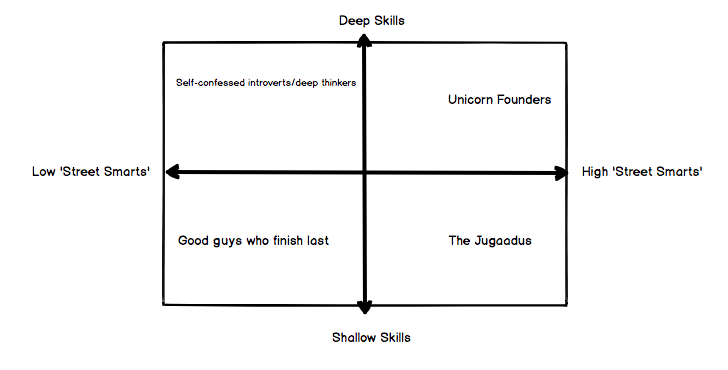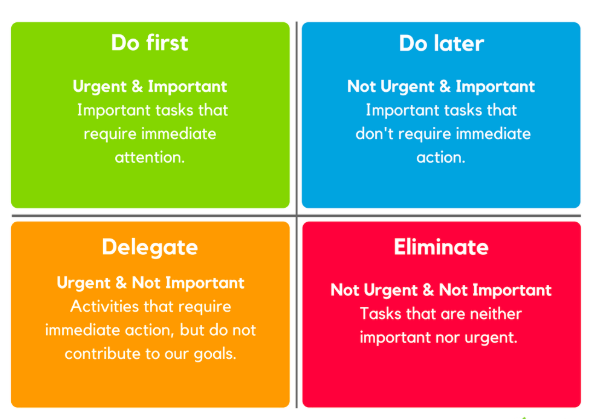India has 341 confirmed cases of the Corona virus infection (344 as per this) as I write this, we are having a Junta Curfew across India and even had a 5 Baje 5 Min Clapping and Banging Thali session.
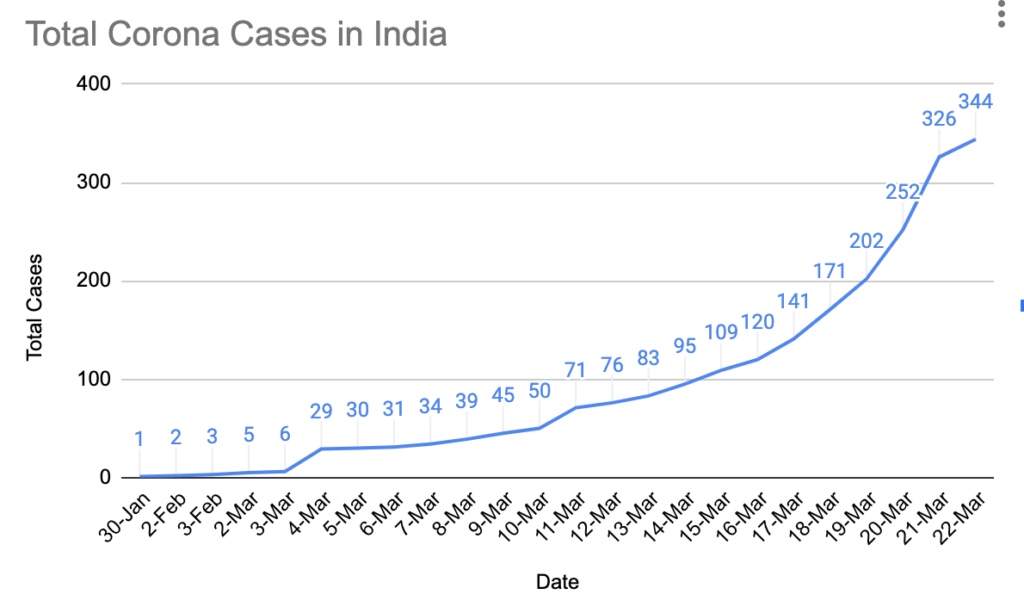
In 10 days since I wrote “Covid-19 Outbreak – Do You See The Risk?” the number of cases has increased more than 5 fold.
It took 17 days for cases to reach first 100 confirmed cases, 5 days for the next 100 and under 3 days for the next 100. Digest that for a second.
Was this unanticipated? Not really. Given the rate of spread of virus across the world especially China, Italy, Iran & USA this shouldn’t come as a surprise.
While authorities might not have been that pro-active at taking measures to control the spread and planning to prepare for the pandemic they are still a bit early (if you go by number of confirmed reported cases) to act.
Countrywide Shutdown Status
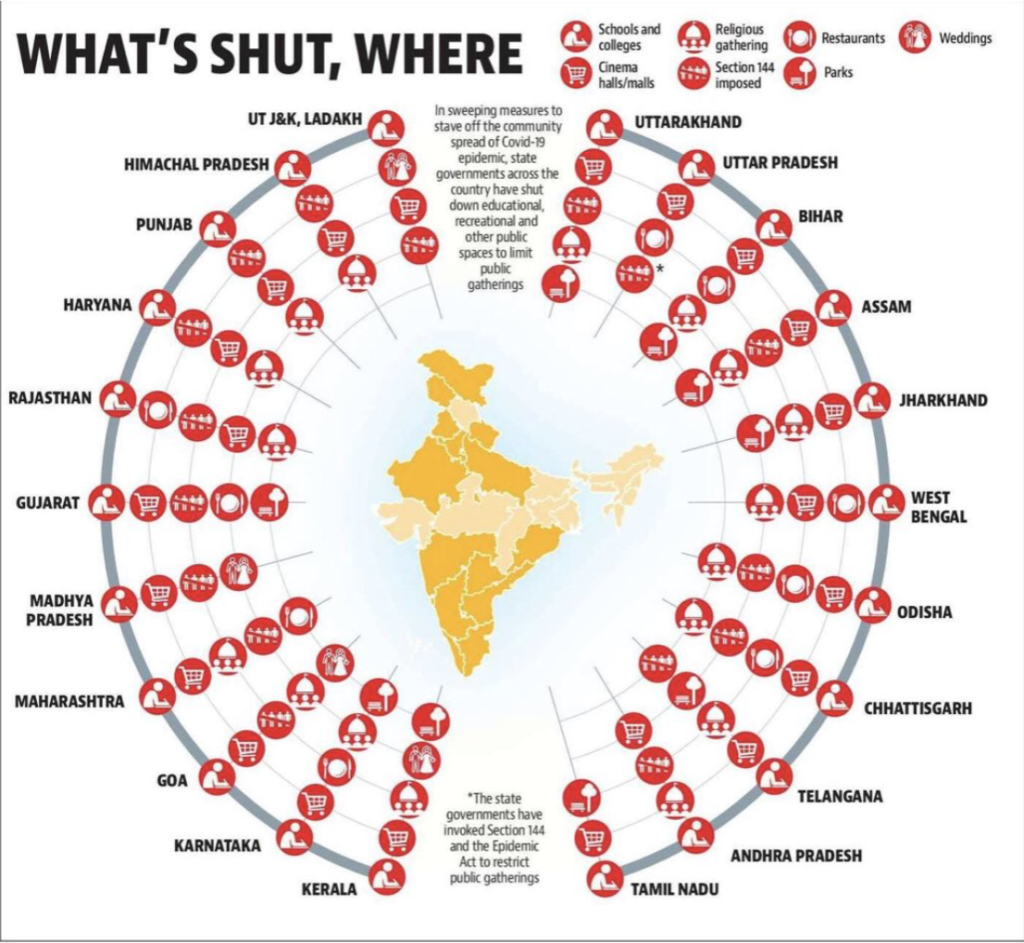
As you can see in the infographic above states across the country have shut down education institutes, cinema halls/malls, religious gatherings, restaurants, weddings and parks.
While the developments above have been unfolding over the last few days, just today the following major developments were announced
Today’s Announcements
- Interstate Passenger Transport Suspended till 31st March (Train and Buses)
- All Metro & Mumbai Local Trains to be Suspended till 31st March
- 75 Districts (including Delhi) across the country to have a lockdown
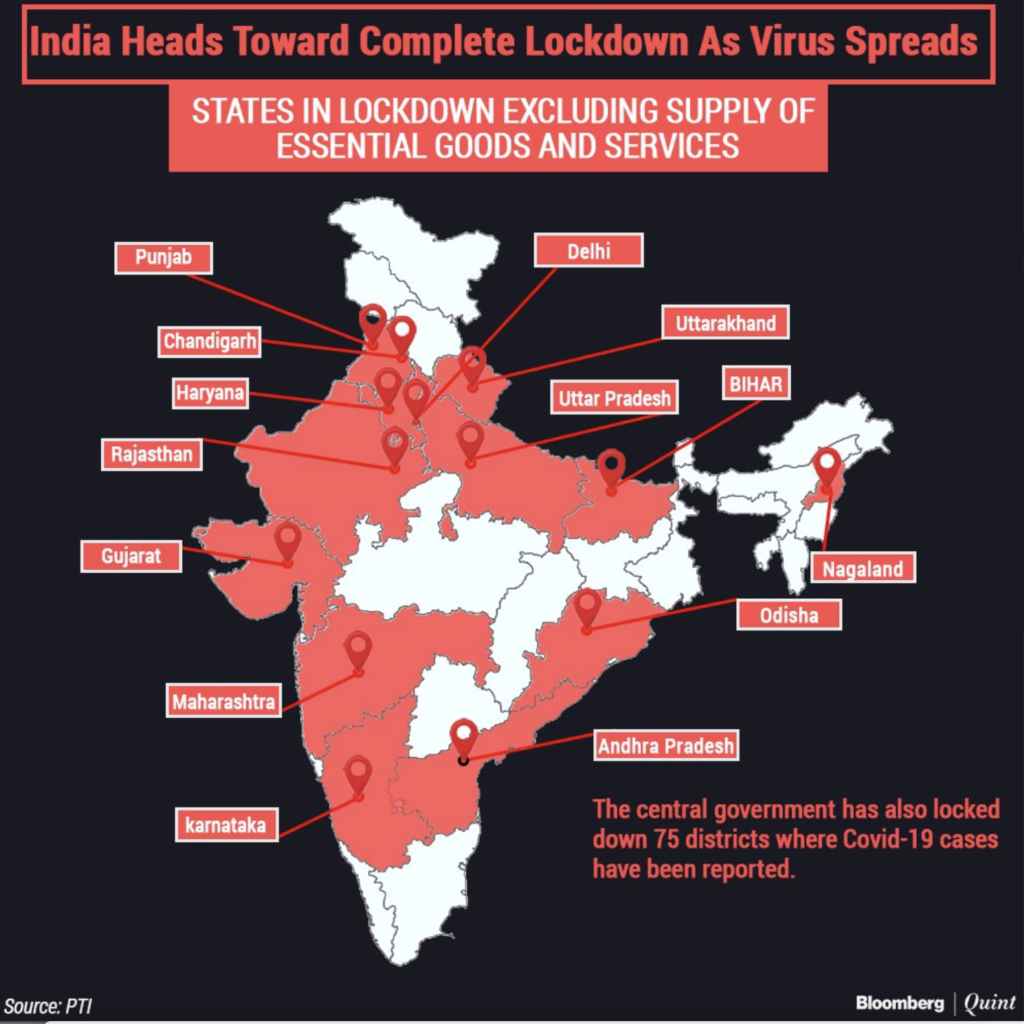
These enforcements are unprecedented but absolutely essential to control the spread of virus.
I’m not an expert by any means but IMHO there are the following aspects to the corona pandemic
- Data: Sharing detailed information to create awareness and dispel myths.
- Prevention: Controlling the spread or ‘Flattening the curve’ as now it’s called.
- Treatment: Upgrading and Scaling up Healthcare Infrastructure to ensure the best possible facilities for treatment.
- Rebuilding: Trying to mitigate damage to economy and taking measures to rebuild it.
- Preparation: Ensure that all learnings from this pandemic are built upon for such calamity in future.
Data: Ministry of Health and Family Welfare launched a section on their portal for Corona Data and some advisories issued by the government.

While the data is good, it’d be great to have more details around the same and most importantly around testing. Singapore for example shares patient level data which enables creating detailed dashboards like this one
This not only helps in analysis but also tracing and creating awareness about spread of virus across demographics/regions. Sharing data around tests being done across cities would clear up a lot of things. Perhaps the criteria for testing could have been relaxed and private sector roped in a bit earlier.
Prevention: I support all the initiatives taken to prevent ‘community spread’. The sooner we take drastic steps, the better. Now that we are officially under lockdown, it should run for at least 6-8 weeks (April end) given that there’s a months gap between lockdown and peak in confirmed cases. In parallel, we must continue to spread awareness on hygiene, social distancing etc, test aggressively and ensure strong quarantine measures for confirmed cases.
Treatment: This is the part where currently there’s as much information out there as should be. While we limited confirmed cases, this is the best time to learn from other countries and scale up our healthcare infrastructure to accommodate a spike in patients. From adding more hospital beds, converting buildings to hospitals, providing protective gear for healthcare professionals, expediting research & development, inducting more people in the medical workforce, arranging medicine, ICU beds and ventilators. A lot needs to be done across states in this departments. This should be done on priority and information shared with publick
This interview by Dr Ramanan Laxminarayan with Karan Thapar is quite informative
Rebuilding: While the impact on lives will be massive, a lot of effort will have to be put on the economic front. The entire machinery has come to a grinding halt. Some industries like Airlines, Hospitality, Entertainment are seeing never before drop in business activity. Those along with the people at the bottom of the pyramid and micro business owners will need a lot more help in getting by till normalcy returns and some support after things normalize (France suspended utility bills, rent for struggling SMBs)
A lot many concrete steps should be announced asap to avoid cascading events of the drop in the economic activity.
In addition to this, a lot of initiatives should be taken to ensure minimal disruption in supply chain for critical good.
Preparation: While we were caught by surprise this time and given that viral outbreaks aren’t going to go anywhere soon, it’d be wise to learn from this experience and prepare for future outbreaks once we are able to contain Covid-19. Setting up dedicated departments/teams supported with funding and other assistance to enable them to gear up for coming years.
At an individual level, you only have one job, Stay the *** home.
Hope over the coming weeks we make progress on above mentioned lines, minimize the damage and get past this disaster.

